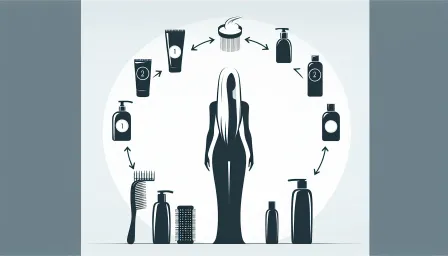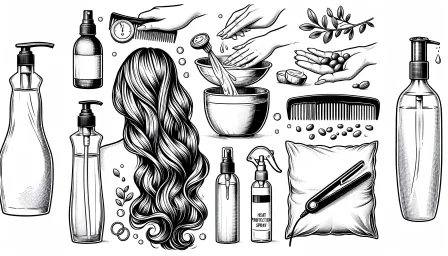What Causes Hair Loss in Women: Top 7 Factors Explained

Discover the top 7 factors that can cause hair loss in women. Learn about the underlying reasons, symptoms, and solutions to address these issues effectively.
Hair loss in women can be a distressing experience, affecting self-esteem and overall well-being. Understanding the underlying causes is essential for finding effective solutions. This comprehensive guide delves into the top seven factors that contribute to hair loss in women, providing insights into symptoms, potential treatments, and prevention strategies.
1. Hormonal Imbalances
Hormonal fluctuations are among the most common causes of hair loss in women. Conditions such as pregnancy, childbirth, menopause, and polycystic ovary syndrome (PCOS) can significantly impact hormone levels, leading to hair thinning and shedding.
Symptoms and Solutions
Symptoms include diffuse thinning, particularly at the crown of the head. Solutions often involve hormone-regulating medications or lifestyle changes such as diet and exercise to manage hormonal levels.
2. Genetic Factors
Genetics play a crucial role in female pattern hair loss, also known as androgenetic alopecia. This hereditary condition affects the hair's growth cycle, resulting in gradual thinning and loss.
Symptoms and Solutions
Early signs include a widening part and thinning on the top of the head. Treatments may involve topical applications like minoxidil, oral medications, and in some cases, hair transplant surgery.
3. Stress and Trauma
Significant stress or trauma can lead to temporary hair loss known as telogen effluvium. This condition causes hair follicles to enter a resting phase prematurely, resulting in increased shedding.
Symptoms and Solutions
Hair loss typically occurs 2-3 months after a stressful event and often resolves on its own. Managing stress through relaxation techniques, therapy, and lifestyle changes can help mitigate hair loss.
4. Nutritional Deficiencies
A diet lacking essential nutrients can contribute to hair loss. Deficiencies in iron, protein, vitamin D, and zinc are particularly linked to hair health.
Symptoms and Solutions
Symptoms include diffuse thinning and brittle hair. Addressing nutritional gaps through a balanced diet or supplements can promote hair regrowth and strength.
5. Medical Conditions
Certain medical conditions like thyroid disorders, autoimmune diseases (such as alopecia areata), and scalp infections can lead to hair loss.
Symptoms and Solutions
Depending on the condition, symptoms can range from patchy hair loss to diffuse thinning. Appropriate medical treatment targeting the underlying condition is crucial for managing hair loss.
6. Hairstyling Practices
Frequent use of heat styling tools, chemical treatments, and tight hairstyles can damage hair and lead to traction alopecia, a form of hair loss caused by pulling on hair follicles.
Symptoms and Solutions
Symptoms include hair breakage and thinning along the hairline. Opting for gentler hairstyling practices and giving hair a break from heat and chemicals can help restore hair health.
7. Medications and Treatments
Some medications and treatments, such as chemotherapy, can induce hair loss as a side effect. Other drugs that may contribute to hair loss include certain blood thinners, antidepressants, and blood pressure medications.
Symptoms and Solutions
Hair loss due to medications is often temporary, with regrowth occurring once treatment is completed. Consulting with a healthcare provider about alternative medications or supportive measures can help manage this issue.
Conclusion
Understanding what causes hair loss in women is the first step toward finding effective solutions. By identifying the specific factors affecting your hair health, you can take targeted actions to address the root causes. Whether it's through medical treatment, lifestyle changes, or improved hair care practices, regaining control over hair loss is possible. Consulting with a healthcare provider or a dermatologist can provide personalized treatment options and further insight into managing hair loss effectively.



























